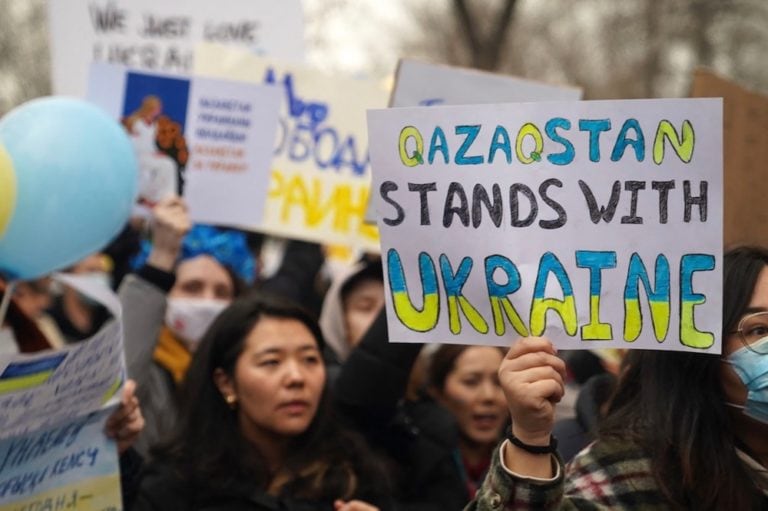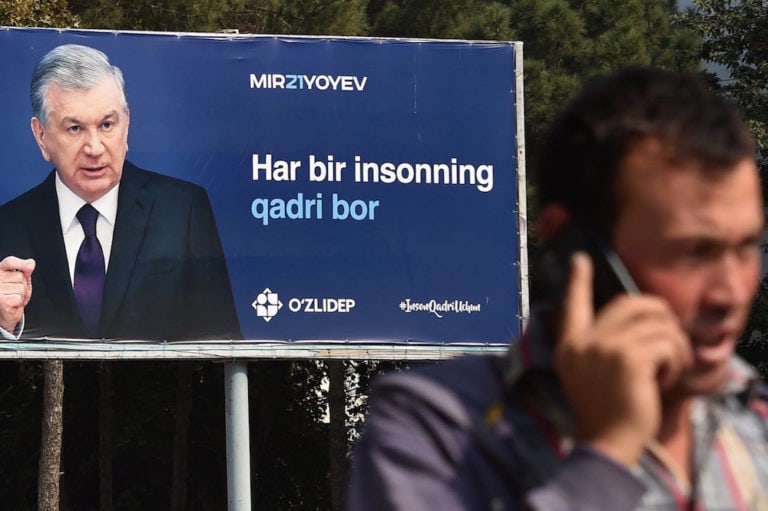(WiPC/IFEX) – Hopes are high that Uzbek National Day on 1 September 2002 will be marked by an amnesty which could include the release of political prisoners. Among them are the noted writer, Mamadali Makhmudov, and two other writers who have been detained since 1999. However, previous hopes that they would be included in an […]
(WiPC/IFEX) – Hopes are high that Uzbek National Day on 1 September 2002 will be marked by an amnesty which could include the release of political prisoners. Among them are the noted writer, Mamadali Makhmudov, and two other writers who have been detained since 1999. However, previous hopes that they would be included in an amnesty were not met. Concern is also growing for the welfare of political prisoners as recent months have seen a marked increase in reports that describe prison conditions as appalling and ill-treatment by prison guards as rife.
International PEN, as an organisation of writers, is particularly concerned for the fate of writers, notably Makhmudov, whose health is precarious.
BACKGROUND:
Makhmudov was among six men sentenced to between eight and 15 years in prison on 18 August 1999 for their alleged involvement in the Uzbek opposition movement. Their convictions were part of a wider clampdown against opposition figures following a series of bomb explosions in Tashkent, the Uzbek capital, in February 1999. Makhmudov was arrested at his home in Tashkent on 19 February 1999, three days after the bomb attacks, and subsequently charged under the Uzbek Criminal Code Article 158 (threatening the president) and Article 159.3 (threatening the constitutional order). Makhmudov was sentenced to 14 years in prison. Also convicted were Mohammed Bekzhon, a journalist, who received 15 years in prison, and Yusif Ruzimuradov, a former editor, who is serving eight years (see IFEX alerts of 10 June 2002, 25 and 19 August 1999).
Makhmudov and his co-defendants are imprisoned because of their links to Muhammad Salih, the exiled leader of the opposition party Erk, who is also a writer. (Bekzhon is Salih’s brother). Salih was the only candidate to stand against President Islam Karimov during presidential elections in 1991. Erk lost the elections and was banned in 1993, and Salih fled into exile in 1994.
The trial against Makhmudov and his co-defendants started on 3 August 1999 at the Yangiyul District Court, Tashkent. The evidence against the defendants appears to rest on their possession and distribution of the “Erk” newspaper, banned since 1993. The prosecutor claimed that the newspaper contained articles threatening the president. Other charges relate to the defendants’ alleged involvement in “Erk” or for its distribution.
Makhmudov is a writer in the traditional “dastan” style of epic verse which typically features a hero with magical qualities. Under the Soviet Union, the dastan was labelled “impregnated with the poison of feudalism” and Makhmudov was forced to repudiate his work. After the Soviet Union collapsed, his most famous work, “Immortal Cliffs”, was retroactively awarded the Cholpan Prize. In 1991, Makhmudov supported Salih’s political party. Makhmudov was first arrested in 1994 when his house was raided and police produced a firearm as evidence that he was guilty of terrorism. This charge met with widespread disbelief and was dropped. He was subsequently charged with embezzlement and sentenced to four years in prison. An international campaign was mounted on his behalf, and when no evidence was produced, he was given a presidential amnesty and released.
Recommended Action
Send appeals to authorities:
– calling on the Uzbek government to take the opportunity of the forthcoming 1 September national day to release all political prisoners detained in violation of their rights, as guaranteed under the International Covenant on Civil and Political Rights to which Uzbekistan is a state party
Appeals To
Please send your appeals to:
President Islam Abduganievch Karimov
70000 g. Tashkent
pr. Uzbekistansky
Rezidentsiya prezidenta
Uzbekistan
Fax: + 998 71 139 5625
E-mail: uzinfo@uzinfo.gov.uz
Copies to:
Ms Sayora Rashidova
Commissioner for Human Rights
700008 g. Tashkent
pl. Mustqkillik, 2, Oliy Majlis Respubliki Uzbekistan
Fax: +998 71 139 8555
E-mail: mtillaboev@oliymajlis.gov.uz
Mr Ubaydulla Mingbayev
Chairman of the Supreme Court of Republic of Uzbekistan
700183 g. Tashkent
ul. Abdualla odiri, 1, Verkhovny sud Respubliki
Uzbekistan
Fax: +998 71 141 0028
Also send copies to:
– The Uzbek representative in your country
– The Central Asia Desk officer at your own government’s Foreign Office
– Your country’s official representative in Tashkent
Please copy appeals to the source if possible.


